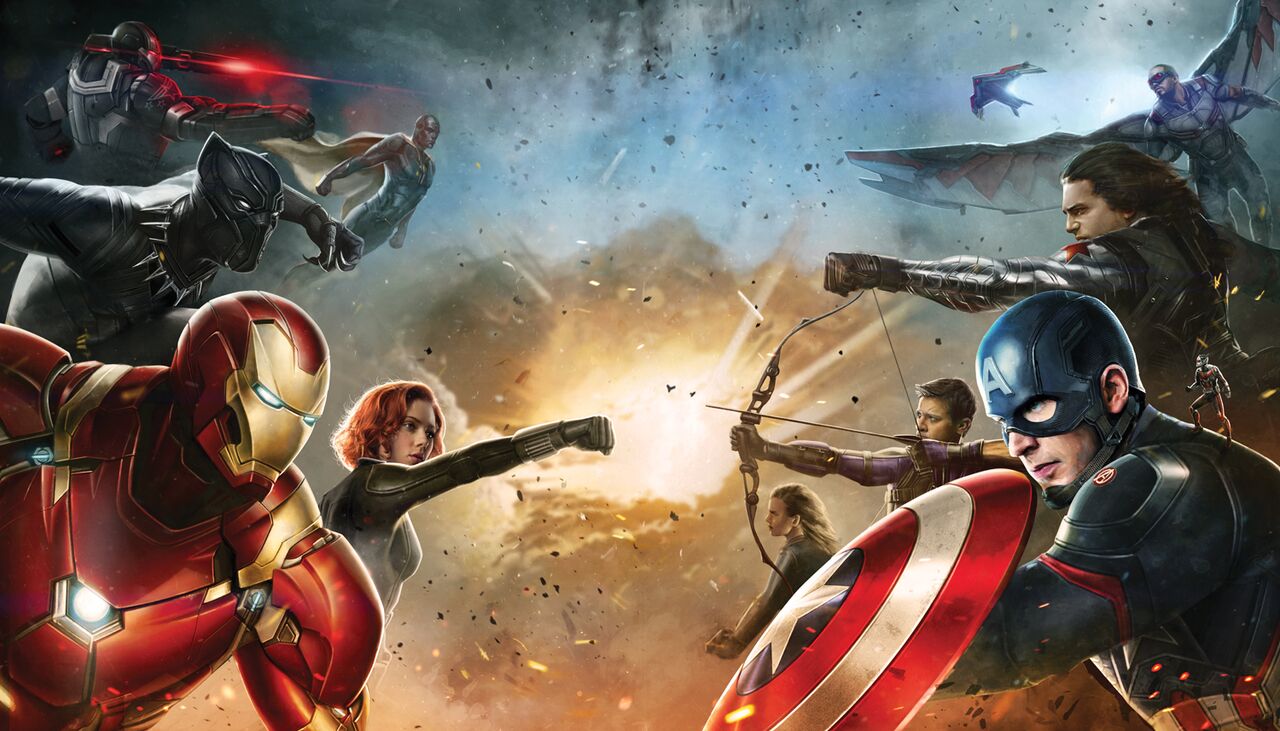Get to Know the Directors of ‘Captain America: Civil War’
With the epic new trailer for ‘Captain America: Civil War’ hitting the web today, we thought we’d re-post our Editor-in-Chief’s story on the film’s directors, Anthony and Joe Russo, from our April 2014 issue.
The two things that are killing movies are the same two things that will save them. Those two things are superheroes and television. You want a case study? Look no further than Captain America: The Winter Soldier.
First a caveat. Yes, there are other dangers facing cinema: online piracy, a generation of smartphone-addled teenagers with the collective attention span of a Snapchat photo, Shia LeBeouf—but for our purposes, TV and Superheroes pose the biggest threat right now. Let’s keep things simple.
That the assertion that television is going through a golden age is so universally accepted as to be a cliché doesn’t make it untrue. TV is where writers and directors and actors explore complex characters and narratives, without the box office constraints of the Cineplex. That’s good for us, but it means that, suddenly, television is a competitor of film. Why see another tired rom-com, when you can watch True Detective?
Hollywood has responded by taking fewer risks. They can’t compete with the small-scale drama of prestige TV, so they focus on their strength: Big Dumb Spectacle. And spectacle doesn’t get much bigger (or, to be fair, much dumber) than superhero movies. This isn’t to say that Marvel hasn’t been putting out good films. It has—they have been better than they have any right to be—but they’re still entirely driven by spectacle. And the better those films do, the more they get made, until all films are explosive pabulum, full of recognizable characters from dusty comic books and reheated nostalgia.
So: On the one hand, Captain America represents the problem. But, it also embodies the solution. With great power, comes great responsibility. (Or, no, that’s Spider-Man isn’t it?)
Yes, Captain America: The Winter Soldier has explosions. It has set-pieces that would never work on the small screen. But, at its core, it’s not a typical superhero movie. It’s very intentionally a 1970s style spy thriller. It’s a genre with a wonderful history that has fallen out of favour. But thanks to the Cap, it’s being resurrected. The same way Thor resurrected the epic fantasy, or Guardians of the Galaxy will try to reanimate the space opera. “The things that Kevin Feige [the mastermind producer behind all of Marvel’s films] always says about this,” says Joe Russo, who with his brother Anthony, directs the new Captain America, “is ‘I can’t believe we got to make a ’70s thriller. Thank God we got a superhero in it.’”
Marvel is basically tricking the superhero-numbed public into seeing genres that they aren’t familiar with. It’s a safe step in the direction of more eclectic taste. “Part of the recipe of Marvel’s success is that they’re looking for people outside the genre to bring an interesting twist and energy to the genre,” says Anthony.
But how does TV factor into all this? Well, the river of television talent flows both ways—it always has, to a certain degree, but now that television is better, the fish (he said, straining the metaphor) are getting bigger, too. Take the Russo brothers.
They started making indies in the ’90s. They made a short film that caught the attention of Steven Soderbergh, who helped them with their first feature. After that, instead of making more quirky independent films, they jumped to the small screen. “There was a small window where independent filmmaking became the aspiration and we got to make shows like Arrested Development, and Community,” says Anthony.
It was the latter that got them their big gig on Captain America. They filmed the paintball episodes of Community’s second season (which, if you don’t watch the show, are, firstly hilarious and secondly master classes in action genre homage). Kevin Feige saw it, and brought them in to the big leagues. But, because they got their legs in the small-scale world of TV, they can bring that sensibility back to the blockbuster—things like in-depth characters, good writing, and, yes, the ability to play with genre. And as television continues to be a better and better proving ground for film, it can’t help but inject life into the staid world of the silver screen.
After all, what doesn’t kill you makes you stronger. I think Spider-Man said that, too.










